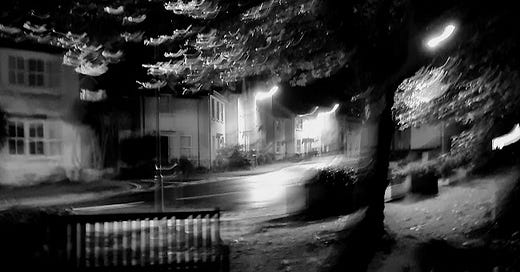To recall briefly my earlier pieces about memory, we have all faced the difficulty of remembering our earliest childhood years. Freud called it “infantile amnesia,” a failure of human memory that “turns everyone’s childhood into something like a prehistoric epoch.”[1] Freud’s initial explanation of this phenomenon has since been reworked by cognitive psychologists but what, if anything, does this problem have to do with the field of History? More specifically, how has it helped to make the archive, that key ‘location’ for historians, seductive to both historians and non-historians alike? Or how, more loosely put, does it turn us all into historians?
“We are en mal d’archive: in need of archives… It is to burn with a passion… It is to have a compulsive, repetitive, and nostalgic desire for the archive, an irrepressible desire to return to the origin, a homesickness, a nostalgia for the return of the most archaic place of absolute commencement.”[2]
If it is true that Derrida’s three-hour lecture, once published, brought renewed theorizing about the meanings and usages of the archive, it is equally true that, as Carolyn Steedman put succinctly, “Many English-speaking readers – this one too – have assumed that Archive Fever has something to do with archives (rather than with psycho-analysis, or memory, or finding things)…”[3]
Steedman’s point is that Archive Fever provides an analysis of the archive not so much as place, or even as forms of historical evidence, but as a psychoanalytic concept and metaphor for our human longing for lost pasts and origins. If we have public places called archives, they are a product of this longing in its social and collective forms. But for each of us in our unsung journey from birth to death, this longing is also personal. And it can set in any time after we achieve the cognitive capacity to encode memories. By adulthood, in many of us, its evidence may be seen in our photo albums, scrapbooks, collections of nostalgic ephemera from the period in which we were children, family heirlooms, Ancestry.com. These are the manifest paraphernalia of our desire to create a personal archive, recover the past, go back, and relive the beginning even though psychoanalysis has told us, all too clearly, that this is a lost object that cannot be found.
Derrida invokes our futile desire, drawing on the Freudian repetition compulsion – the desire to repeat. It was Freud’s clinical observation that his patients exhibited a compulsion to act out/re-enact/repeat the very things that caused them suffering: early traumas, conflicts, or childhood experiences. In Beyond the Pleasure Principle (1920), Freud set out to theorize this principle of repetition not only as an obstacle to therapeutic ‘working through’ (whereby the patient remembers and gains insight, rather than re-enacts or relives the past) but as a general human tendency. Moreover (and as Derrida reminds us), Freud proposes that the compulsion to repeat should be understood in conjunction with the death drive. This is Freud (by his own admission) writing in his most speculative mode (and, at least in part, in the shadow of his daughter’s death).[4]
At the beginning of Part Four, he writes:
“What follows is speculation, often far-fetched speculation, which the reader will consider or dismiss according to his individual predilection. It is further an attempt to follow out an idea consistently, out of curiosity to see where it will lead.”[5]
Many discussions of Beyond the Pleasure Principle note that its stark proposals concerning repetition and the death drive (particularly in Part Six) are difficult to disentangle from events in the author’s personal life and his grief at the loss of Sophie.[6] Freud appears to have anticipated this view. “The beyond is finally finished,” he wrote to Max Eitingon in July 1920. “You will certify that it was half-finished when Sophie was alive and flourishing.”[7] Despite this apparent disavowal (far in advance of any reader responses), Jacqueline Rose points out that “an entirely new sixth chapter, the longest by far, was added to a later draft, making up almost a third of the published text. The new chapter contained the first appearance in print of the term ‘death drive’.”[8] Whatever Freud’s intentions concerning the legacy of this particular text, Rose proposes that we, today, may read it as a “philosophy of grief”, noting the experiences of grief that Freud himself would later describe as “inconsolable”:
“In this theoretical trajectory – by Freud’s own account one of his most speculative – he is moving between elegy and treatise, between sorrow and science… But what stood out for me this time was a dimension that seemed to enter his thought with the death of Sophie, to which we can now confidently say this whole chapter [Six] came in response. Better death as a silent companion than a death that falls out of the skies. A remorseless law of nature is preferable to a death that should – might – not have taken place.”[9]
Thus, in key passages concerning repetition and death, Freud invites us to view the human compulsion to repeat as belonging to “organic life in general.” This is a difficult move but one that allows him to situate the compulsion “upon the track of a universal attribute of instincts.”
“It seems, then, that an instinct is an urge inherent in organic life to restore an earlier state of things which the living entity has been obliged to abandon under the pressure of external disturbing forces… This view of instincts strikes us as strange because we have become used to see in them a factor impelling towards change and development, whereas we are now asked to recognize in them the precise contrary – an expression of the conservative nature of living substance.”[10]
Anticipating the objection that there are instincts that push us forward rather than backward, Freud asks the reader to pursue, with him, “the hypothesis that all instincts tend towards the restoration of an earlier state of things.”[11] His argument here is that this pushing forward is deceptive. The goal of the instincts is “to reach an ancient goal by paths alike old and new:
“Moreover it is possible to specify this final goal of all organic striving… it must be an old state of things, an initial state from which the living entity has at one time or other departed and to which it is striving to return by the circuitous paths along which its development leads. If we are to take it as truth that knows no exception that everything living dies for internal reasons – becomes inorganic once again – then we shall be compelled to say that ‘the aim of all life is death’ and, looking backwards, that ‘inanimate things existed before living ones’.”[12]
For those who would wish immediately to raise the objection of our human instincts for self-preservation, Freud has an answer:
“They are component instincts whose function it is to assure that the organism shall follow its own path to death, and to ward off any possible ways of returning to inorganic existence other than those which are immanent in the organism itself. We have no longer to reckon with the organism’s puzzling determination (so hard to fit into any context) to maintain its own existence in the face of every obstacle. What we are left with is the fact that the organism wishes to die only in its own fashion.”[13]
Again, Freud is giving name to our desire for an “old state of things,” and our “striving to return” to that “initial state” from which we “departed”. Where Freud takes these insights in this challenging piece (described by Rose as “one of the most important works of the second half of Freud’s life” - one that “has excited passionate enthusiasm and virulent hostility in equal measure”) is beyond the concerns of this discussion.[14] The point here, finally, is that Derrida has cast ‘archive fever’ as a symptom of our (conservative) desire to repeat and recover our lost beginnings, our longing for the original state from which we departed. In other words, Derrida takes from Freud the argument that the archive belongs to our instinctual movement toward death. Moreover, Derrida will assert that the archive is “hypomnesic” – dependent on hypomnema: documents, records, writing itself. Such are the practical realities of archiving. Such is the archive as external place. And the archive, in all these aspects, is like human memory itself: simultaneously powerful and unreliable.[15]
How, then, might we return to the land of the plural: archives as places, collections of historical evidence in which we seek to shore up our human memory and understanding of the past?
“And let us note in passing a decisive paradox…if there is no archive without consignation in an external place which assures the possibility of memorization, of repetition, of reproduction, or of reimpression, then we must also remember that repetition itself, the logic of repetition, indeed the repetition compulsion, remains, according to Freud, indissociable from the death drive. And thus from destruction.”[16]
More simply put, the archive is under constant threat of unreliability, forgetfulness, and destruction (including self-destruction). And our attempt to shore up the archive (singular/metaphorical) through the creation of archives (plural/material) is fraught: “The archive,” states Derrida, “always works, and a priori, against itself. The death drive tends thus to destroy the hypomnesic archive, except if it can be disguised, made up, painted, printed, represented as the idol of its truth in painting.”[17]
It is true. We approach our desired archive - in its various guises - with stars in our eyes. We can’t help ourselves. The border guard waves us through. He’s been expecting us. In yet another movement of repetition, we enter the gates of archive-as-place (buildings, ruins, documents, objects, photographs, letters, all manner of collections). We are in the land of hope and plural which, for all its flaws, failings, and exposure to destruction and forgetfulness, we need. We create and recreate our archives. We romance our archives. We find pleasure and we get hurt. We are sometimes deceived, disappointed, left hanging. But we make truths too. Helpful truths. Mostly, we just want more - we humans, we children who are not born historians, but become historians.
[1] Freud, Sigmund, Three Essays on the Theory of Sexuality. 1905. In Freud, Sigmund, and Gay, Peter. 1995. The Freud Reader. London: Vintage, 260).
[2] Derrida, Jacques. 1996. ARCHIVE FEVER : A Freudian Impression. University Of Chicago Press. 91.
[3] Steedman, Carolyn. 2001. Dust. Manchester: Manchester University Press. 9. Steedman goes on to note that Derrida’s commentators have said little about archives as “record offices, libraries and repositories” and “the everyday disappointments that historians know they will find there.” This is a point taken up by some professional archivists in a justifiable appeal for greater dialogue between archivists and Humanities scholars. See, for example, Caswell, Michelle. 2016. “‘The Archive’ is Not an Archives: Acknowledging the Intellectual Contributions of Archival Studies,” Reconstruction: Studies in Contemporary Culture, 16:1.
[4] Sophie Halberstadt-Freud died during the Spanish Flu pandemic. In a letter to Oskar Pfister dated January 27, 1920, Freud wrote about the loss of his daughter: “That afternoon we received the news that our sweet Sophie in Hamburg had been snatched away by influenzal pneumonia, snatched away in the midst of glowing health, from a full and active life as a competent mother and loving wife, all in four or five days, as though she had never existed.” PEP | Browse | Read - Letter from Sigmund Freud to Oskar Pfister, January 27, 1920 (pep-web.org).
[5] Freud, Sigmund. 1920. Beyond the Pleasure Principle. In Freud, Sigmund and Gay, Peter. 1995. The Freud Reader. 606.
[6] For a moving and detailed discussion of how Beyond the Pleasure Principle might help us to think about our own recent pandemic experiences, see Rose, Jacqueline. 2023. The Plague. Fitzcarraldo Editions.
[7] Freud, Sigmund. 1920. Letter to Max Eitingon. Beyond the Pleasure Principle – A Virtual Reading Experience - Freud Museum London.
[8] Rose, Jacqueline. 2023. The Plague. Fitzcarraldo Editions. 51.
[9] Ibid. 50-55. And a “philosophy of grief” that differs from the one we find in Freud’s other important text on the subject, Mourning and Melancholia (1917).
[10] Freud, Sigmund. 1920. Beyond the Pleasure Principle. In Freud, Sigmund and Gay, Peter. 1995. The Freud Reader. 612.
[11] Ibid. 612.
[12] Ibid. 613.
[13] Ibid. 614.
[14]Rose, Jacqueline. 2023. The Plague. Fitzcarraldo Editions. 52.
[15] Note too, that in medical terms, hypomnesia refers to memory impairment.
[16] Derrida, Jacques. 1996. ARCHIVE FEVER : A Freudian Impression. University Of Chicago Press. 11-12.
[17] Ibid. 12. (For a further commentary on Beyond the Pleasure Principle, see also Derrida, Jacques. 2020. The Post Card. University of Chicago Press.





